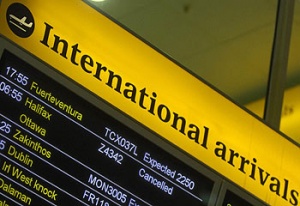UK chancellor freezes Air Passenger Duty

British chancellor of the exchequer George Osborne has frozen Air Passenger Duty at its present level.
Announcing the 2011 Budget, Osborne told the House of Commons that there will be no increase in the APD until at least 2012.
In an apparent effort to appease those who had been calling for reform of the levy, he also indicated a consultation would commence straightaway to examine the efficacy of the current distance banding for assessing the duty.
Many, however, were unconvinced, with a reduction in the tax seen as the only viable option in the mid-tern.
“It is no doubt welcome news for the viability of the UK national transportation system and for foreign destinations heavily dependent upon British holidaymakers that the Air Passenger Duty will not be increased,” said Business Travel Coalition chairman Kevin Mitchell.
“However, the current levels of duty still represent a huge problem and they must be radically reduced to bring the
UK back into competitive alignment with other countries for meetings, incentive trips and conventions.
“The next order of business is to expand the coalition of concerned parties outside the UK and deepen communications with UK government officials.”
Mike Carrivick, chief executive of the Board of Airline Representatives in the UK, echoed the sentiments.
He said: “The decision not to increase APD is a welcome development but does not go far enough.
“The UK travel industry already pays the highest aviation taxes in Europe and the existing APD levels do not take into account the EU Emissions Trading Scheme (EU ETS) which airlines will pay into from January 2012.
“Other EU countries have reduced or are removing existing taxes prior to the introduction of EU ETS.”
Private Jets
There was worse news for private jet passengers, however, the chancellor launching a consultation on whether to extend APD to private jets or even introduce a new tax on them.
Travellers using corporate jets do not currently have to pay any duty.
The initiative is part of a wider drive to raise £1 billion through cutting tax avoidance.

